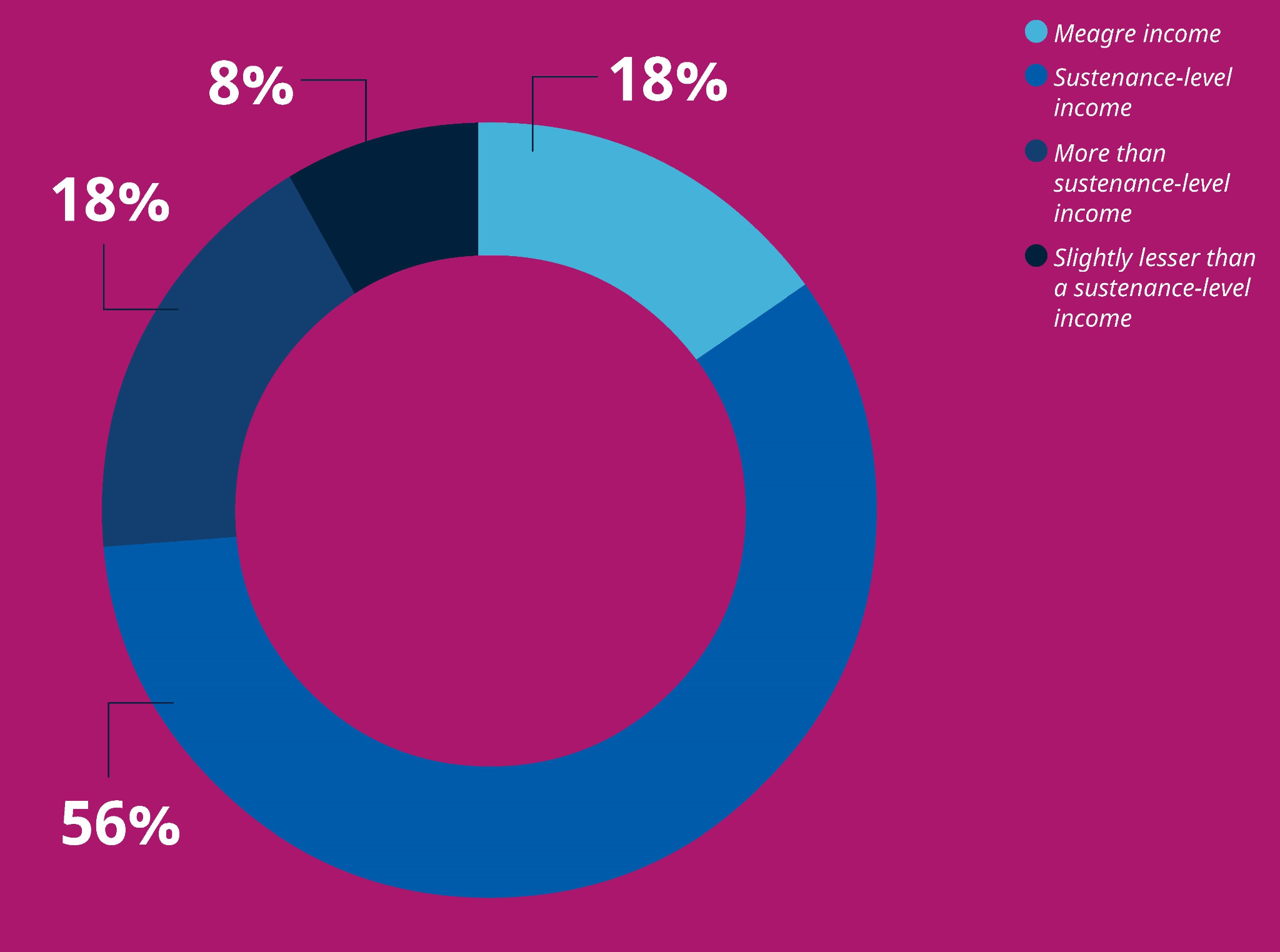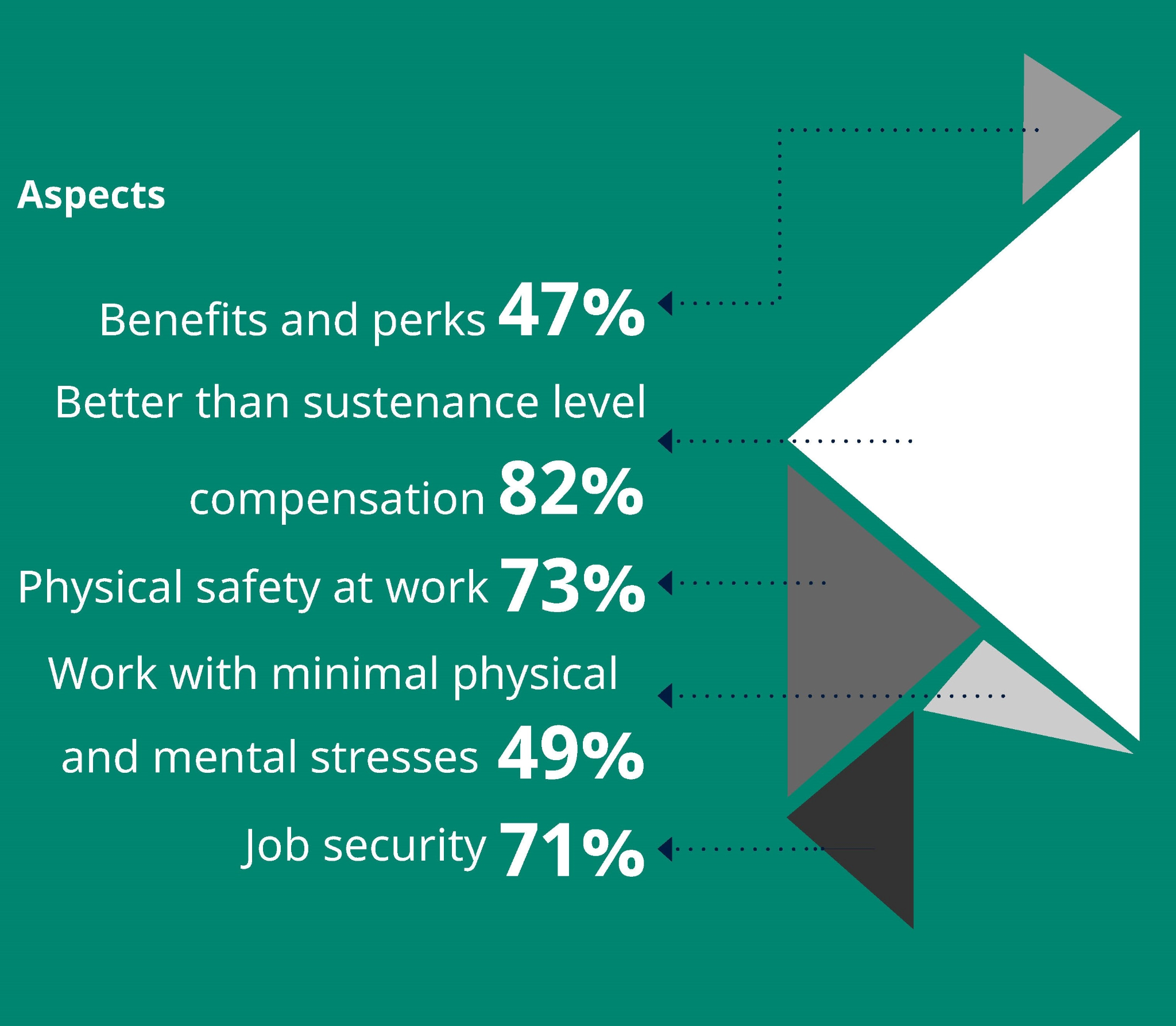Blue-Collar Workers Want Fair Pay, Physical Safety, and Psychological Well-Being: A Survey Report
Among blue-collar jobseekers, 54 percent take a close look at the perks and benefits provided by a company before deciding to join. Notably, a substantial 81 percent of respondents within this category express a specific preference for comprehensive leave policies that encompass holidays.

Blue-Collar Workers Want Fair Pay, Physical Safety, and Psychological Well-Being, but how may get it?
Any economy is built on the shoulders of blue-collar employees. More than 90% of company tasks need physical labour that must be completed by average people.
However, in 80% of situations, blue-collar workers do not receive pay commensurate with their contribution to the financial expansion of the company. That is the primary cause of income inequality and frustration among blue-collar workers.
Blue-collar wage inequality is not just an economic problem; it is also a social one that can result in financial instability, restricted access to healthcare and education, and restricted social mobility.
According to a new Indeed survey, while equitable compensation is crucial for people looking for blue-collar jobs, just 18% of applicants really manage to get such financial stability.
The Survey Represents:

‘The Job Search Process: A Look from the Inside Out’ is the title of a recent poll released by Indeed, a top global matching and recruiting website. As the nature of employment continues to change, the research attempts to delve deeply into the feelings of job searchers. The report emphasizes numerous factors that blue-collar workers check for in their job search, as well as the various obstacles they encounter.
The survey highlights important factors that matter to blue-collar jobseekers when looking for employment:
Sustenance level salary:
The focus of blue-collar job searchers is fair pay. According to poll results, 82% of blue-collar job applicants are looking for positions that will allow them to earn enough money for discretionary spending above and beyond subsistence levels.
Only 18%, nevertheless, are able to make such money. Up to 56% of blue-collar workers today make enough money to barely cover their basic needs. In addition, 39% of Gen Z blue-collar employees make incomes that are insufficient to cover their essential expenses.
Physical Safety:
Due to the nature of their occupations, a considerable 73% of job searchers prioritize workplace safety. For these personnel, maintaining a safe atmosphere is crucial to preventing accidents and injuries.
Additionally, 49% of those surveyed look for employment opportunities that reduce physical and mental strain at work. Due to the manual labor they perform, blue-collar workers may experience physical stress that can cause strain, exhaustion, and other health problems. Additionally, having an employer who addresses these concerns and fosters a positive, supportive workplace is crucial for general well-being and job satisfaction given the possible psychological stress that comes with high-pressure work conditions.
Learning & Development:
78% of the blue-collar workers polled said they would like to see professional certification programs, such online courses, offered by their companies. Only 22% of the firms polled, meanwhile, said they actually offered such programs.
Job Security:
When looking for new work prospects, 71% of candidates prioritize job security. Many blue-collar professions are unstructured and do not provide the same level of job security as formal jobs. Workers in the informal sector are frequently paid less, do not have health insurance or retirement plans, and are not protected by labor laws. They are also more vulnerable to layoffs or job losses as a result of economic downturns or industry shifts. Job security ensures that employees continue to be paid even in difficult economic times.
Perks and Benefits:
Before joining a company, 54% of job candidates consider the perks and rewards it offers. 81% of those polled want to leave policies that include holidays. 75% want a performance incentive, while 71% want payment for equipment or supplies. 67% of job candidates desire to be recognized for their performance.
Sashi Kumar, Head of Sales at Indeed India, commented on the poll findings, saying, “Blue-collar workers are the backbone of the economy.” According to the study results, blue-collar workers want employment that provide more than simply a wage. They want professions that provide them a sense of stability, the opportunity to grow, and the potential to make a difference in the world.”

Jobseekers prefer simpler application processes during job hunt
One of the primary obstacles that prevents blue-collar employees from having a smooth job search experience is dealing with unclear and complex application processes. According to 72% of blue-collar employees, using clear language in job descriptions has a major impact on their experience. Furthermore, the lack of different communication channels and the uncertainty of application outcomes play a crucial influence.
Job sentiment of white-collar workers
- 71% of employees prioritize work flexibility while 67% prefer salary/compensation
- 70% consider mode of work such as hybrid or remote work arrangements
- 69% care about job location as a parameter for job selection
There is a stark distinction between the goals of knowledge workers and those of blue-collar workers, who value monetary recompense and physical and psychological safety.
- Financial Crisis Cannot Compel an Employee to Work, Resignation Rejection Amount to Bonded Labour: Kerala High Court. - February 17, 2026
- Pernod Ricard India introduces Cheers VRorld, an industry-first VR-powered onboarding experience in the Alco-Bev sector - February 11, 2026
- Jio-bp Appoints Sareeta Bhatikar as Chief Human Resources Officer to Steer Next Phase of Growth - February 11, 2026








